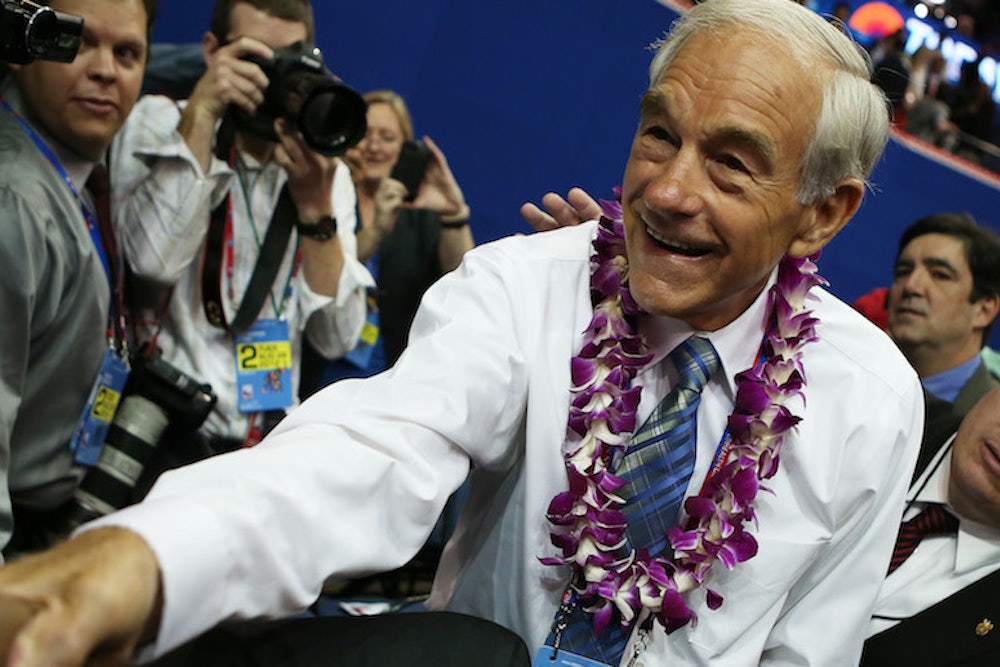I see a lot of red and blue on electoral maps. Gold? Not so often. And yet that’s exactly what you see in the middle of Maine on the Atlas town map of the 2012 presidential election.
It turns out that a small Maine town unanimously voted for a write-in candidate. That’s weird enough. Even more mysterious: the town appears out of nowhere.
A look at the results on the Maine Board of Elections website reveals that there was no error, at least not on the part of the US Election Atlas. The official results also show that the town—Concord, nestled in Maine’s sparsely populated hinterlands—cast three write-in ballots for Ron Paul, who was a registered write-in candidate in Maine. But Concord doesn’t appear in Maine’s election results for 2008, or any of the recent elections I looked at.
When you conduct a simple Google search, it’s clear something’s off. The Wikipedia entry is basically empty (although it has been updated recently enough to include Ron Paul’s victory). The town doesn’t have a website. The first descriptive Google hit says the town’s population was 406… in 1880. The next article says it produced 3,121 bushels of wheat… in 1837. Finally, the news: Concord is an extinct town, and has been since 1939.
That doesn’t mean Concord Township is empty; it just doesn’t have an organized municipal government. The state was forced to take over the town’s assets and liabilities during the Great Depression, and the township remains “unorganized,” with Somerset County providing services, like police or firefighters. These outlying, unorganized parts of Somerset County—including but not limited to Concord—has a very small population of just 336 people, according to the last Census.
States and municipalities often change how they report election results—my election night efforts were complicated by the apparent dissolution of Bedford, Virginia. But why would Concord suddenly return to the official results? It’s hard to imagine the explanation: After all, there were only three votes cast. And when I called the Maine Board of Elections in August, they said it was “hard to say” without going deep into the historical records.
What’s not surprising is that Ron Paul had a lot of support in this part of the country. The area has a tradition of voting for third-party candidates. In 1992, Somerset County voted for Perot, and it was arguably his best county. Technically, Perot’s 38.95 percent in Somerset was his fourth best tally, but there were more than 26,000 votes cast in Somerset—the three counties where Perot did better are basically empty, with no more than 650 voters.
Although Concord isn’t in the 1992 results, Perot eclipsed 50 percent of the vote in four nearby townships. And although there’s basically nothing written about the extinct town’s politics, it’s not hard to see the area’s libertarian bent on Facebook, where Lexington and Concord are busy fighting against wind mills, with posts like “the wind Nazi’s do not have the right to destroy this beautiful place.” Sounds like exactly the place to vote unanimously for Ron Paul.
